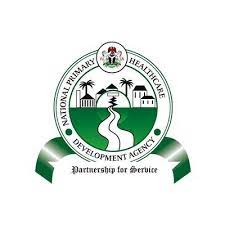Experts have challenged the government to intervene in the difficulties faced by Nigeria’s primary healthcare system. According to them, primary health care is the most important level of care because it is closest to the people and thus requires full government commitment. This conversation occurred at the Nextier Universal Health Coverage bi-monthly policy discourse held on 21st June 2022. The series covers thematic areas relevant to achieving Universal Health Coverage in Nigeria.
The discourse with the theme: “Revitalising Nigeria’s Primary Health Care System” brought together experts and stakeholders in-person and online. Panelists at the event included: Prof. Chima Onoka; Head of Operations at the Health Policy Research Group, Dr Sam Agbo; Senior Health Advisor at the Foreign Commonwealth Development Office, Nigeria, Dr Emmanuel Okpetu; Head, Primary Health Care, Kuje Area Council. In addition, Dr Ibrahim Mustapha, the representative of Prof. Akin Abayomi, Lagos State Commissioner of Health, delivered a keynote address. Dr Uju Onyes, a health policy and financing expert, moderated the event.
The panelists and audience explored the major challenges affecting efficient service delivery in primary health care facilities across the country. The experts identified the absence of adequate medical personnel as one of the teething challenges. They advocated for bridging the human resource gap by implementing and expanding the scope of task shifting and task sharing. They also recommended recruiting graduates from other health science-related disciplines to bridge the human resource gap. Furthermore, they recommended that training community health workers and designing incentive mechanisms to motivate and retain health workers at the community level are potent approaches to bridging the human resource gap at the primary level of care. The experts also stressed the need to address the fragmented governance system by clearly defining roles and responsibilities and ensuring that each party has the power and resources to perform its duties.
The experts advised state and national stakeholders to focus on bridging gaps at the primary level, entrenching accountability rather than directly implementing programs. Furthermore, they recommended designing accountability systems to hold leaders accountable for results. Also, they implored citizens to engage and hold the government accountable for implementing health care policies and plans. They also recommended more effective and efficient use of resources. Finally, participants encouraged the government, private sector, development partners and civil society organisations to play their role in revitalising Nigeria’s primary health care system.
Nextier is a public policy firm that works to solve the complex development challenges in the continent. This initiative is part of Nextier’s effort to build the society we want to live in.




